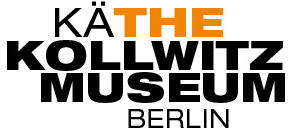LECTURE
on March 13, 2025
at 19.00
Entrance fee 8,00 euros / reduced 5,00 euros
The exhibiton will be open until 19.00.
Private collecting, nationalized trade and the confiscation of cultural assets in the GDR
Works of art and antiques were exported from the German Democratic Republic to the “West” in order to earn foreign currency. Uncovering the extent of these exports was one of the central themes of the peaceful and democratic upheavals at the turn of the years 1989/90. What findings has research produced to date? How did the systematic recording of art and cultural assets work in order to remove them from private ownership and offer them on the “Western Art Market”? What challenges do provenance research and restitution practices face throughout Germany and abroad?
In 1956, the first state art dealership was founded in East Berlin and the GDR with the aim of offering old and new works of art for sale and organizing changing exhibitions. However, this ambitious project concealed a profound cultural policy dilemma. How could art be traded “on a real economic basis” with special consideration for valuable works of art and at the same time do justice to the individual interests of art collectors in a centrally planned and controlled system?
The cultural policy dilemma of the GDR was further exacerbated by the fact that, on the one hand, valuable art and cultural assets were regarded as inalienable “national property”, while on the other, not everything from expropriated private art holdings was recognized and appreciated as part of the national cultural heritage. These tensions increased when the export of art and antiquities was stepped up in order to obtain foreign currency and private collectors were increasingly exposed to discrimination and criminalization measures.
In his lecture, Dr. Uwe Hartmann sheds light on the challenges and complex framework conditions of the art market in the GDR and discusses the politically motivated seizure and expropriation of art collections.
Uwe Hartmann, born in Rostock, studied art history at the Humboldt University in Berlin, where he obtained his doctorate in 1990. Until 1999, he worked as a research assistant at the art history department of the Humboldt University in Berlin.
In 2001, he began working at the Coordination Office for the Loss of Cultural Property in Magdeburg. In 2008, he moved to Berlin and took over the management of the then newly founded Provenance Research Unit at the Institute for Museum Research. Since the founding of the German Lost Art Foundation in Magdeburg in 2015, he has been head of the Department of Cultural Property Losses in the 20th Century in Europe.
Uwe Hartmann is a lecturer at the Humboldt University in Berlin and a lecturer at the Federal Academy for Cultural Education in Wolfenbüttel.


